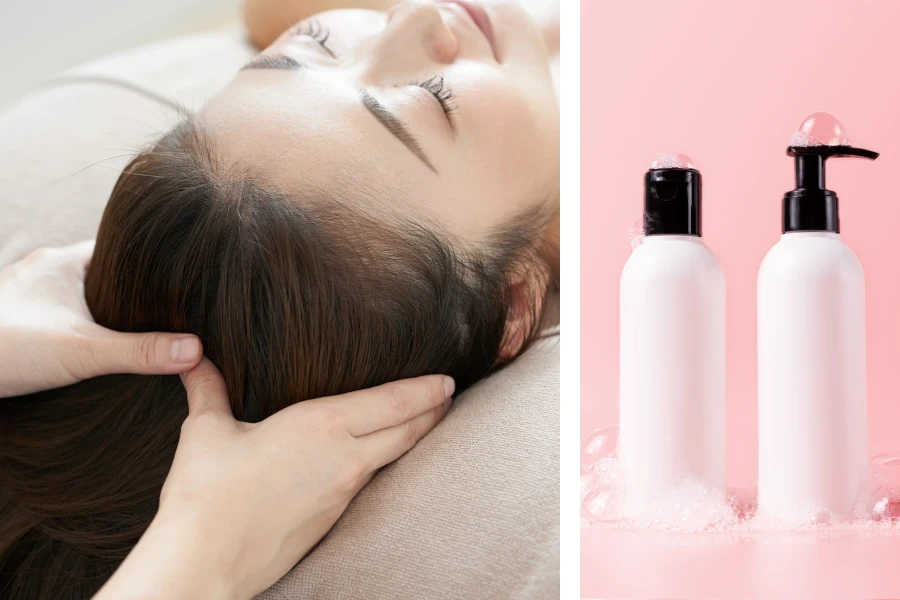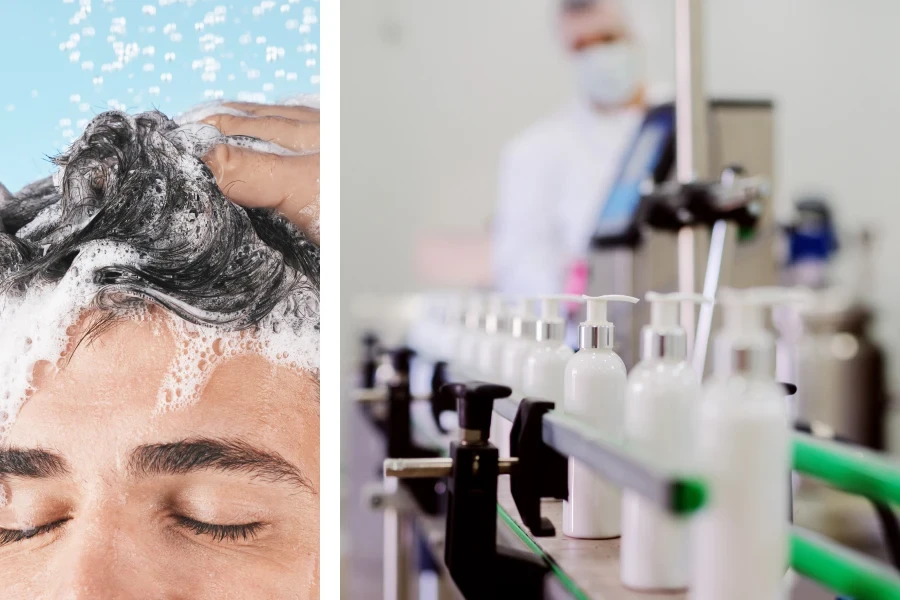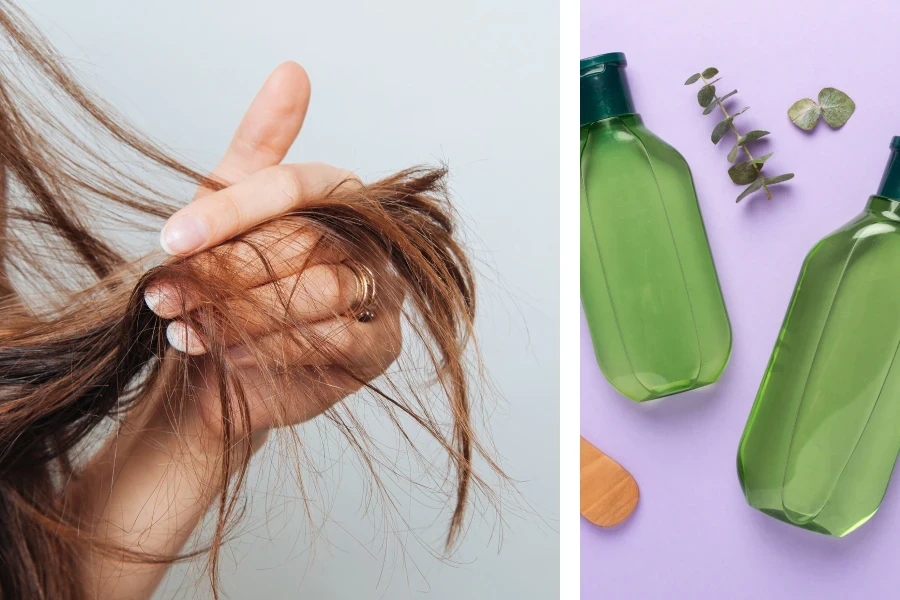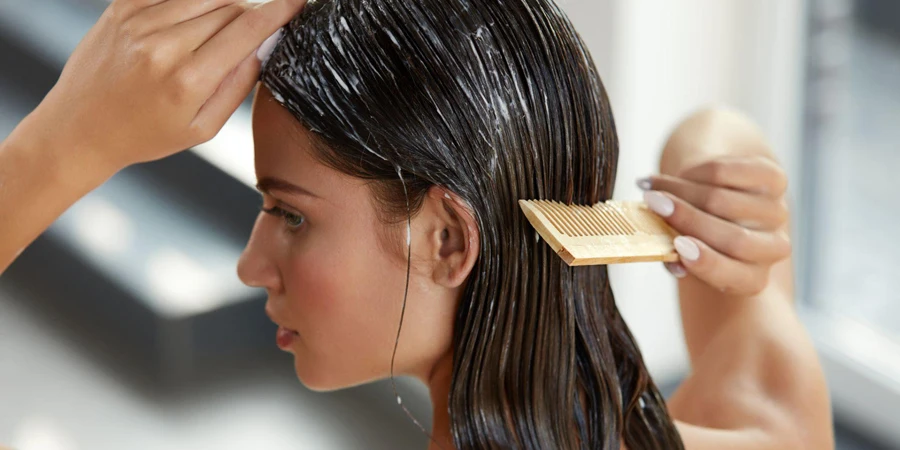As we approach 2026, the haircare industry is undergoing a transformative shift, aligning closer than ever with the realms of technology, mental health, and advanced hair repair solutions. This evolution reflects a growing consumer demand for products and services that offer more than just superficial benefits. It’s about holistic well-being, personalized experiences, and addressing the root causes of hair concerns. Innovations in “Headcare,” tech-integrated haircare tools, and advanced damage control solutions are setting the stage for a future where haircare is as much about enhancing mental wellness and leveraging technology as it is about nurturing hair health. This article explores these pivotal trends, shedding light on how they are reshaping the haircare landscape for consumers and retailers alike.
Table of Contents:
Hair therapy: blending mental health with haircare
Techspert haircare: the rise of AI and technology
Damage control: focusing on hair health and repair
Hair Therapy: From Haircare to Headcare
The evolution of haircare into “headcare” signifies a profound shift towards incorporating mental health and wellness into daily hair routines. Arkive’s Headcare and Flora exemplify this trend by promoting self-connection and personalization in haircare practices. Arkive offers an 11-product range designed to facilitate moments of self-connection through haircare routines, accompanied by nostalgic, uplifting, and calming scents. Similarly, Flora, a French brand, allows users to personalize their haircare routines with targeted boosters, enhancing the experience with a Hair Spa in Paris that includes global scalp massages and an olfactory journey.

This transformation is not just about product offerings but also about the services provided in salons. Post-pandemic, salons are becoming therapeutic spaces where haircuts and treatments are viewed as essential to wellbeing, with 45% of consumers considering them crucial for their mental health. Innovations like scalp facials, inspired by Japanese beauty rituals, and the use of devices such as Airapha’s hair steamer and scalp waterfall, further integrate wellness into the haircare experience, emphasizing the importance of pre-shower rituals and the therapeutic benefits of hair oiling. Social media trends like #HairOiling, with 957 million views on TikTok, underscore the growing desire for these therapeutic routines.
Techspert Haircare: Tech-driven Routines and Services
The integration of technology into haircare, or “techspert haircare,” is revolutionizing how consumers approach their routines. Companies like Yuv Beauty and Remington are at the forefront, offering products that personalize haircare experiences through technology. Yuv Beauty’s salon color device and Remington’s PROluxe You hair tools, which feature Intelligent StyleAdapt Technology, tailor heat settings to individual hair types and styling preferences using AI. This personalization extends to hair analysis, where tools like Myavana’s HairAI tech offer photo-instant hair analysis for textured hair, creating personalized product recommendations.

The trend towards hyper-personalized salon experiences is gaining momentum, with innovations such as SalonLab&Me’s SalonLab Smart Analyzer, which assesses hair at a molecular level to customize haircare products. This move towards customized experiences is indicative of a broader trend in the beauty industry towards personalization and efficiency, leveraging technology to reduce waste and create more sustainable salon practices.
Damage Control: Solutions to Strengthen and Repair
Addressing hair damage has become a priority within the haircare industry, with a focus on bond-building and the repair of hair strands. Products like Hello Klean’s Hard Water Shampoo and Nu Standard’s bond builder for textured hair types represent the industry’s response to the challenges posed by environmental factors and hard water. The “skinification” of hair health has led to the adoption of ingredients traditionally used in skincare to address hair damage, with products designed to strengthen hair bonds and protect against future damage.

The rise of co-wash creations and the no-poo movement highlight a shift towards gentler cleansing methods that avoid stripping hair of its natural oils, benefiting those with dry, frizzy, or textured hair. Brands like Hairlust are leading the way with products that exclude harmful sulfates and silicones, focusing on hydration and protection against environmental stressors.
Conclusion
The haircare industry’s future is undoubtedly exciting, with technological advancements, a focus on mental wellness, and innovative solutions to hair damage leading the way. The integration of AI and personalized technologies in haircare routines, alongside a heightened emphasis on mental health through “headcare,” reflects a shift towards more inclusive, holistic approaches to beauty and well-being. Additionally, the industry’s pivot towards addressing hair health at its core with sophisticated damage control solutions signifies a deeper understanding of consumer needs. As we move towards 2026, these trends not only anticipate the evolving demands of consumers but also offer online retailers invaluable insights into the future market landscape, emphasizing the importance of adaptability, innovation, and a consumer-centric approach in navigating the dynamic world of haircare.




